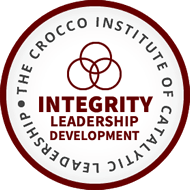In my childhood, a pond close to my home taught me one of the most valuable lessons I have ever learned about doing relationships. I cast countless stones into that pond and discovered that each time I did, I created ripples in the pond. In my youth, I remember on a number of occasions, irrationally thinking that I could throw stones into that pond without creating ripples. In spite of my desire not to be a ripple maker, I created ripples every single time my stones made contact with the water. It was during some of those irrational moments that I discovered the timeless ripple principle. You will always create ripples when you throw stones into ponds.
It is helpful to apply the ripple principle to our relationships with others. Every time you have contact with another human being you create relational ripples. The ripple principle is as certain and as timeless as the law of gravity. It is critical to understand that from a relational standpoint, the principle of “ripple-making” in and of itself is neutral. We have the potential to create positive or negative relational ripples with others. The nature and quality of the ripples we create are dependent upon our choice of attitudes, words and responses with others. Unfortunately, many people live their entire lives never recognizing or grasping the quality of the ripples they are creating in their relationships with others. As a result, their relationships often dramatically suffer. We can’t practice relational sleep-walking by failing to grasp the ripples we create in our relationships with others and expect to be successful in our relationships.
Effective leaders recognize that leadership is primarily about influence. We influence other human beings as leaders, through our attitudes, people skills and communication skills. This is precisely how relational ripples are created in our relationships. This is why leaders must bring a high level of intentionality to their relationships with others. Leaders cannot afford to lead others neglecting the ripple principle. Every leader, without exception, is creating ripples in the lives of others in every interaction. Knowing this reality, should motivate leaders to become more self-aware and emotionally-intelligent in their interactions with others. The more intentionally self-aware and emotionally-intelligent a leader is, the more potential that exists in a leader’s life to create positive and life-transforming ripples in the lives of their team members. The next time you are about to throw a relational stone into the pond of someone else’s life, begin a new practice and discipline in your life. Pause long enough to evaluate the nature and the quality of the ripple you are about to create. That discipline and practice will make you a more effective leader, while improving the quality of your relationships in your personal life.

